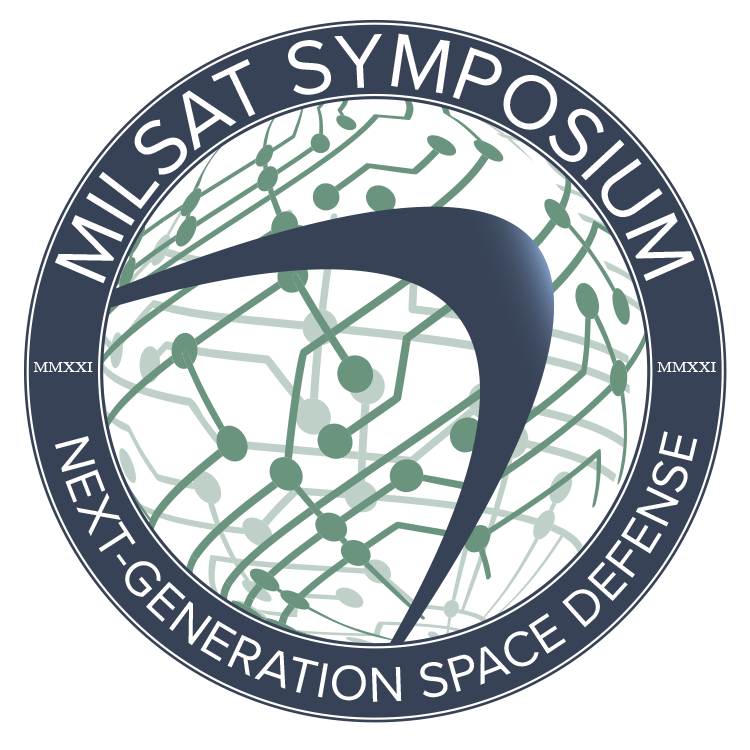

This panel will focus on technologies for securing RF in space operations. Particular focus will be given to the threats that create the most significant risk for military RF operations and which technologies create the best opportunities for increased resilience in contested RF environments.
 Ken Peterman
Ken Peterman
Ken Peterman is Founder & CEO, SpyGlass Group, an innovative thought-leading organization that has helped shape aerospace and defense strategic trajectories in the tactical communications, mobile networking, cybersecurity, and satellite sectors since 2012. As a passionate, creative and forward leaning leader in the global aerospace and defense market, Ken serves on a variety of boards and advisory groups where he has been honored with multiple awards, including:
– Industry Tech Outlook 2020: Ten Best Innovative Business Leaders
– BattleSpace Magazine 2018: Businessman of the Year
– Vanguard Magazine 2018: Game Changer Awardee
Previously, as President, Viasat Government Systems (2013-2021), Ken led a global defense business (>$1B) recognized as a market leader in assured high-capacity satellite communications, tactical networking and Link-16 datalinks, information assurance and cybersecurity, hybrid adaptive networking and blended air/ground situational awareness. Under Ken’s leadership, Viasat built a culture of passionately focusing on the warfighter’s mission and applying technical innovation to empower the warfighter in new and different ways, proactively creating technology-enabled operational capabilities in unprecedented ways some never thought possible. Ken led Viasat’s transformation as the fastest organically growing US defense company for six consecutive years. Viasat grew to become a prime capabilities provider to the US DoD and allied forces, with a commitment to connecting the world’s toughest missions and ensuring that mission operators have the trusted information they need, when and where they need it most.
Previously, as President, ITT/Exelis Communications and Electronic Warfare Systems (2007-2013), Ken led a global defense and aerospace business >$1B with over 3,000 employees in 12 states plus the United Kingdom. Portfolios included tactical and satellite communications systems, information assurance and cybersecurity solutions, global positioning systems (GPS), electronic protection and counter IED systems, and integrated command, control, communications and computer (C4) systems for U.S. and allied forces in over 35 countries. (Note that ITT/Exelis spun out of ITT in 2011 and was then acquired by L3Harris in 2015.)
A distinguished leader in aerospace and defense, Ken has enjoyed successful executive leadership tenures at Viasat, ITT/Exelis, Rockwell Collins and Raytheon. Broadly respected as a thought leader and innovator among US and international senior leaders, he currently serves on a variety of boards and advisory groups. Ken received a Bachelor of Science in Electrical Engineering (high honors) from Tri-State University (now Trine) and completed executive programs at Stanford University Graduate School of Business and Pennsylvania State University.
 Dr. Josef Koller
Dr. Josef Koller
Dr. Josef Koller is a Systems Director for the Center for Space Policy and Strategy, serving as a senior analyst and team leader on topics that cut across policy, technology, and economics. Prior to joining Aerospace, Dr. Koller served as a Senior Advisor to the Office of the Secretary of Defense for Space Policy where he directly supported key national and international strategy efforts for space-related U.S. Government and DoD policy matters including commercial remote sensing, space traffic management, and related congressional affairs. Prior to that assignment, Dr. Koller managed and co-lead over 40 scientists in the “Space Science and Applications Group” at Los Alamos National Laboratory. Dr. Koller also established and led the Los Alamos Space Weather Summer School to promote graduate student research and outreach at the Laboratory.
Dr. Koller has over 17 years of experience with global security and space science programs. He has authored over 50 peer-reviewed scientific publications with 700 citations. Dr. Koller has a Ph.D. in Astrophysics from Rice University.
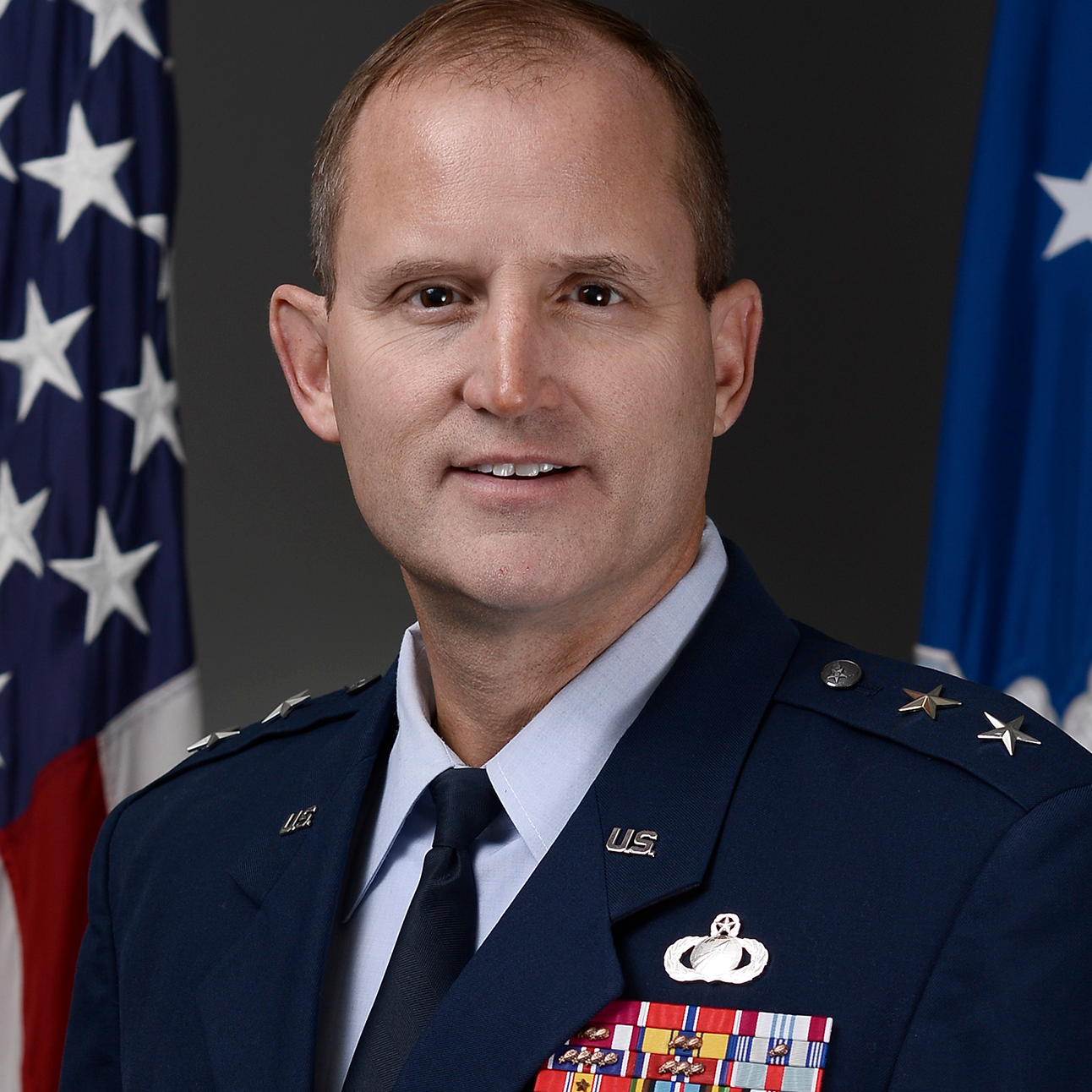 Maj. Gen. Cameron Holt
Maj. Gen. Cameron Holt
Maj. Gen. Cameron G. Holt is the Deputy Assistant Secretary for Contracting, Office of the Assistant Secretary of the Air Force for Acquisition, Technology and Logistics, Washington, D.C. He is responsible for all aspects of contracting relating to the acquisition of weapon systems, logistics, and operational support for the Air Force and provides contingency contracting support to the geographic combatant commanders. He leads a highly skilled staff of mission-focused business leaders supporting warfighters through $825 billion of Space, Global Power/Reach and Information Dominance programs. He also oversees the training, organizing and equipping of a workforce of some 8,000 contracting professionals who execute programs worth more than $65 billion annually.
Prior to this assignment, General Holt served as the Commander, Air Force Installation Contracting Agency (AFICA), Office of the Assistant Secretary of the Air Force for Acquisition, Wright-Patterson Air Force Base, Ohio. He led an over 700 personnel agency with a total contract portfolio of $55 billion. In this capacity, he directed enterprise-wide installation strategic sourcing efforts for the Air Force and oversaw $9.1 billion in annual obligations for mission and installation requirements.
General Holt received his commission through the ROTC at the University of Georgia in 1990. He has experience in the full spectrum of acquisition and contract management across four major commands, Headquarters U.S. Air Force, U.S. Air Forces Central Command and the Joint Staff. General Holt is a joint qualified officer with multiple deployments in support of Operation Enduring Freedom.
EDUCATION
1990 Bachelor of Business Administration, International Business, University of Georgia, Athens
1996 Distinguished graduate, Squadron Officer School, Maxwell AFB, Ala.
1999 Master of Arts, Organizational Management, George Washington University, Washington, D.C.
2005 Distinguished graduate, Master of Military Operational Art and Science, Air Command and Staff College, Maxwell AFB, Ala.
2008 National Security Fellowship, Kennedy School of Government, Harvard University, Cambridge, Mass.
2014 Enterprise Leadership Seminar, Kenan-Flagler Business School, University of North Carolina at Chapel Hill
2018 Enterprise Perspective Seminar, Washington D.C.
ASSIGNMENTS
SUMMARY OF JOINT ASSIGNMENTS
MAJOR AWARDS AND DECORATION
Legion of Merit
Bronze Star Medal
Defense Meritorious Service Medal
Air Force Meritorious Service Medal with two oak leaf clusters
Air Force Commendation Medal with two oak leaf clusters
Air Force Achievement Medal with oak leaf cluster
OTHER ACHIEVEMENTS
2000 Secretary of the Air Force Professionalism in Contracting Award
2002 Aeronautical Systems Center Outstanding Contingency Contracting Officer
2003 Air Education and Training Command Professionalism in Contracting Award
2005 ACSC Dean’s Award for Outstanding Research, International Security Studies
2005 Secretary of the Air Force (Acquisition) Team of the Year
2006 Secretary of the Air Force (Acquisition) Team of the Year
2008 Walker Paper Award, Strategic Studies Quarterly, Air University
EFFECTIVE DATES OF PROMOTION
Second Lieutenant Aug.18, 1990
First Lieutenant Feb. 1, 1993
Captain Feb. 1, 1995
Major Feb. 1, 2002
Lieutenant Colonel March 1, 2006
Colonel Sept.1, 2010
Brigadier General Sept. 2, 2015
Major General Oct. 12, 2018
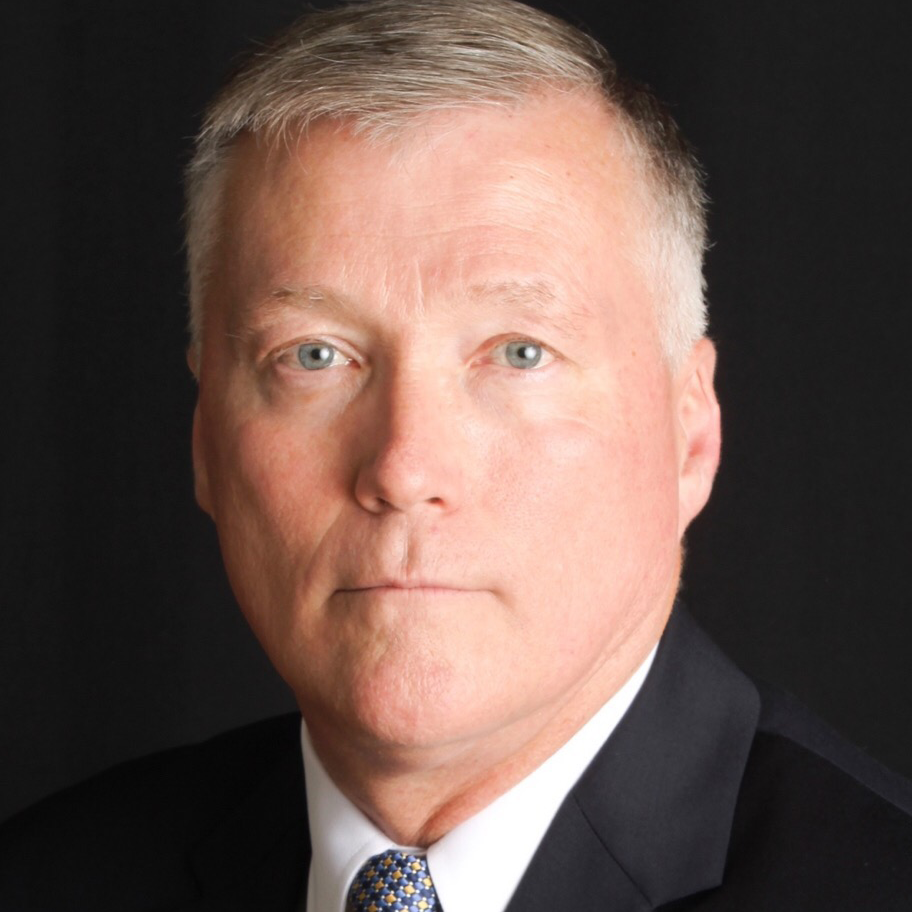 Lt. Gen. Kevin McLaughlin
Lt. Gen. Kevin McLaughlin
Kevin McLaughlin has over 37 years of experience in the space and cyberspace business with a focus on creating and leading large-scale, innovative, global organizations, and with unique strengths in managing strategic corporate cyber risk, complex operations, strategic planning, policy development, organizational transformation, and human capital development.
As the founder and President of McLaughlin Global Associates LLC, Gen McLaughlin serves as a corporate director and advises senior executives and corporate boards on strategy formulation and implementation, with an emphasis in the areas of space and cyberspace. He specializes in several strategic issues facing the U.S. government and U.S. industry.
In particular, Kevin is a thought leader and advises senior leaders on the identification and mitigation of cyber-related strategic business risks as they exist across complex enterprises, to include the micro- electronics global supply chain. He is also deeply involved in helping senior leaders in and out of government manage the sea state changes occurring in the fabric of our space and cyberspace ecosystem. Theseincludenewtypesofpartnershipsinhowthegovernmentandprivatesectorpartner to defend our country and increase resilience against space and cyber threats, to include how the government leverages the unique strengths that come from traditional government procured capabilities, capabilities from our allies, and vertically integrated services from commercial companies. Last, Kevin is a nationally acknowledged leader in how we develop the needed human capital processes and underlying cultures required for the government and industry as they transform in the space and cyber arenas.
Kevin is active in the non-profit arena and is the Chairman of the Board of Governors for the 57,000- member Civil Air Patrol and also serves on the board for Feed the Need, a non-profit based in Bastrop, Texas. Gen McLaughlin is the Director of the Program for Cyber Policy, Strategy, and Security and an Adjunct Professor of Practice at the George Bush School of Government and Public Service at Texas A&M University.
Gen McLaughlin’s last active duty assignment was as the Deputy Commander of United States Cyber Command at Ft Meade, Maryland from 2014 – 2017. In this capacity, he directed 12,000 personnel and a $525M budget to defend the nation’s largest information network, provide offensive cyberspace options to commanders, and protect critical U.S. infrastructure from cyber-attacks. Before joining U.S. Cyber Command, Gen McLaughlin led 24th Air Force and Air Forces Cyber, the U.S. Air Force’s organization of 4,500-personnel that organized, trained, and equipped Air Force cyber forces, and executed global cyberspace operations in support of U.S. Cyber Command.
Prior to his assignment at 24th Air Force, Gen McLaughlin spent thirty years as a leader of large, complex, and highly technical organizations associated with some of the world’s most critical space organizations including the squadron that operates the Global Positioning System and the Air Force operations group that operates over 170 satellites for national leadership, U.S. and allied military, and civil and federal agencies. Kevin served as the only active-duty staff member on the Commission to Assess National Security Space Management and Organization (AKA The Rumsfeld Space Commission) in 2000-2001.
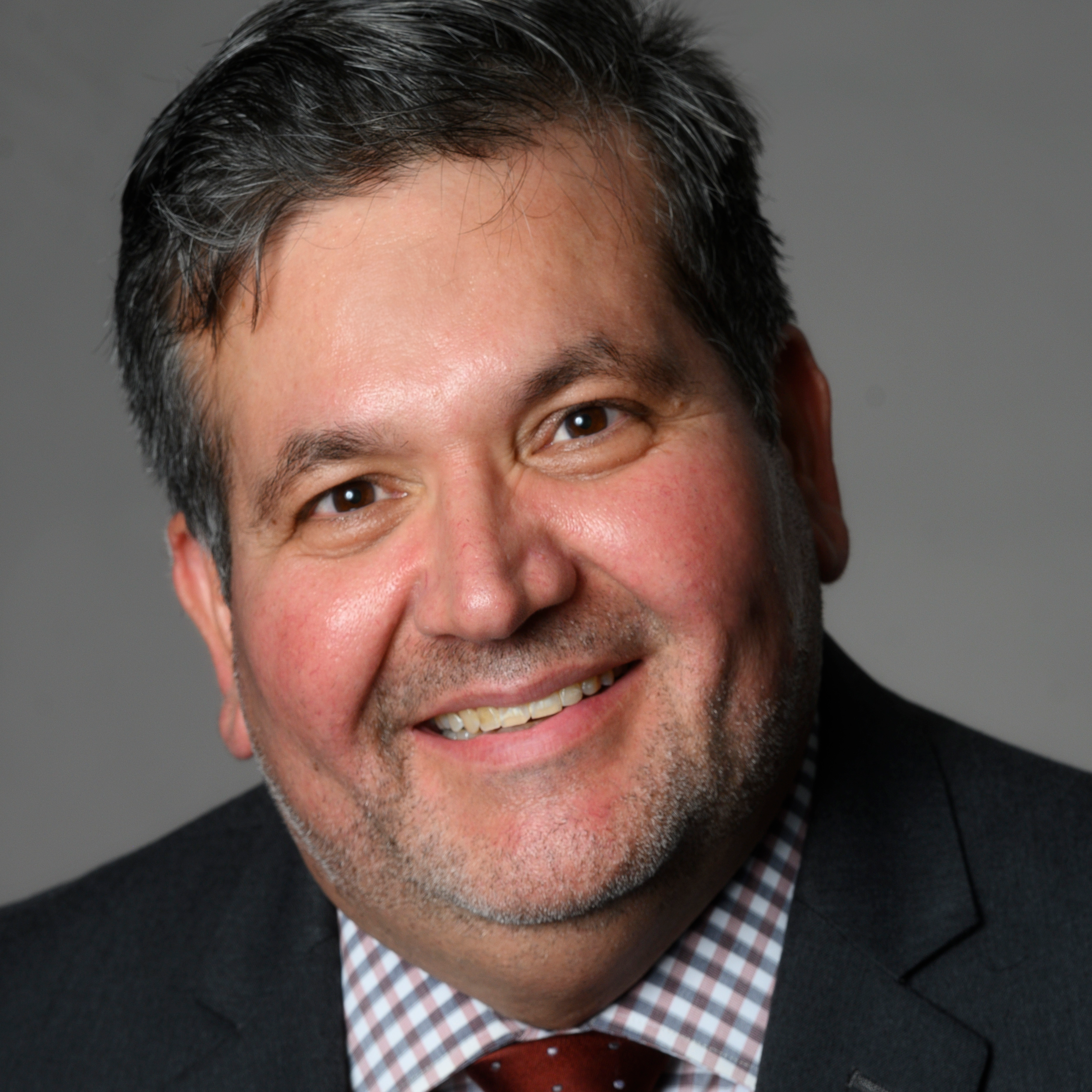 Dr. Javier Montero (Cid )
Dr. Javier Montero (Cid )
Javier is a satellite communications program manager for the Defense Information Systems Agency (DISA) Infrastructure Directorate in Ft Meade, Maryland, where he supports satellite systems’ worldwide implementation. He
is a US military veteran with over 30 years of experience in satellitepayload and gateway planning, implementation, and operations. His focus is in the delivery of SATCOM and terrestrial services, as well as, telecommunications management. Javier specializes in integrating software, analytical capabilities, and operational business intelligence in support of
terrestrial communications and satellite processes. He received a Ph.D. in Information Technology from Capella University in 2019, which focused on the successful use of Business Intelligence systems. Javier is a certified program management professional (PMP).
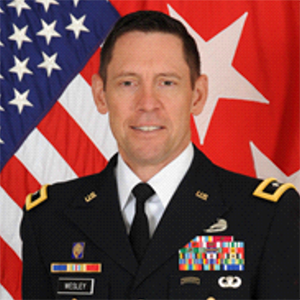 Lt. Gen. Eric Wesley
Lt. Gen. Eric Wesley
Eric J. Wesley has transitioned from the Army as the Deputy Commanding General of Army Futures Command and the Director of the Futures and Concepts Center. In this capacity he was charged with analyzing and assessing the future global security environment, developing a concept for the Army’s role in national security, designing the future Army, and publishing a strategy and pathway to achieve it. He currently serves as the Executive Vice President of Flyer Defense, LLC, a leading developer of electric combat vehicles. In his role, Eric serves to build a consortium of industry partners who will electrify the future battlefield. He is also a member of the Council on Foreign Relations.
Prior to his last assignment in the Army, LTG Wesley served for over 20 years in senior leadership positions of Army organizations from the battalion to the Army enterprise level. These positions included Commander, Maneuver Center of Excellence at Fort Benning, Georgia where he was responsible for the leadership and welfare of over 40,000 Soldiers, families members, and government employees with a budget exceeding $200m; Deputy Commanding General and Senior Mission Commander of the 1st Infantry Division, Fort Riley, Kansas where he was responsible for the leadership and welfare of over 25,000 Soldiers, families members and government employees with a budget exceeding $140m; and Commander of the 1st Brigade, 1st Infantry Division, Fort Riley, Kansas – a 5,000 Soldier organization.
LTG Wesley has also served in very senior staff roles characterized by significant strategic planning. He served in the White House as the Director for Afghanistan on the NSC staff where he was responsible for all military policy, strategic planning, and inter-agency integration including policy for NATO and the Afghan Army. He twice served as the lead planner in Afghanistan for two theater commanders, designing the campaign and providing strategic and operational options up to the President of the United States. He has significant experience in budgeting and programming for the United States Army as he was the deputy to the senior auditor of Army budgets and programming in 2014 and 2015. He later led the task force that designed and formed the newest 4 star command – Army Futures Command. And he twice served on the Chief of Staff of the Army’s transition team in 2015 and 2019, the latter of which he led and directed.
His most recent accomplishments include the enterprise reconfiguration for how the Army modernizes over the next decade; the drafting of the Army’s future operating concept which describes the Army’s future design and the manner in which it must fight; and drafting the Army’s modernization strategy for the next 15 years.
A graduate of the United States Military Academy at West Point, LTG Wesley holds two masters degrees – one in International Relations and the other in National Security Policy. He is a Distinguished Graduate from the Army War College. He has been awarded the Distinguished Service Medal, the Legion of Merit (3), the Bronze Star for valor, and the Bronze Star (2).